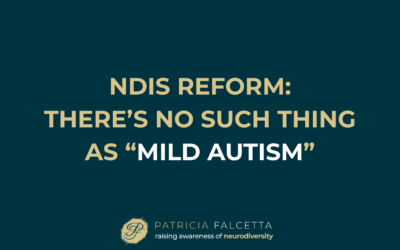Neurodivergent, autism spectrum disorder, neurodiverse diagnosis – why must society pathologise and ‘other’ to better understand and support?
What if we listen to Nicole Baumer (Harvard), and acknowledge neurodiversity as the idea that people experience and interact in the world around them in many different ways? That there is no one ‘right’ way of thinking, learning, and behaving, and differences are not deficits. This would eliminate the terms neurotypical and neurodivergent leaving us all on a spectrum of neurodiversity – a spectrum of different ways of thinking.
My controversial thought is – what if there were more helpful ways to describe the different ways we think? What if we lean more towards a Myer-Briggs personality identity? Or create a new way of identifying ourselves and our thinking patterns without pathologising or discriminating with our language? I think we can do better.
A neurodivergent diagnosis – benefits and pains
Getting a neurodivergent diagnosis can be incredibly helpful, and I am grateful for the access I had to get my own ADHD diagnosis. I don’t want to take that away from anyone, but we could start the change here.
I watch my clients, friends, and even my family benefit from diagnosis through:
- Validation,
- Greater self-understanding and compassion,
- The sense of community and belonging when they connect in with like-minded people,
- A shorthand way of communicating their needs to others, and
- Perhaps most significantly, the medication (when appropriate) and support diagnosis opens for them.
However, I also watch these people go through many of the emotions I had when diagnosed. A little self-judgement, sadness, anger, a sprinkle of discrimination or denial from people in their world, maybe even an increase in self-imposed limitations. A little shrinking in fear of having a disorder, being divergent, and labelled as ‘other’.
We don’t talk about a blood pressure deficit the way we talk about an attention deficit; we simply say (and treat) low blood pressure. Likewise, we do not talk about an insulin deficiency or sugar disorder, we simply say (and treat) diabetes.
Our language change should start here by creating a language where we refer to low dopamine levels instead of attention deficit hyperactivity disorder (ADHD)!? Talk about removing the judgment from language.
Neurodiverse – could we use profiling or personality identities instead?
Beyond medicated solutions to help those diagnosed as neurodivergent to function with more ease in a neurotypical world, many other diagnosed ‘conditions’ are supported with simple, often affordable, and practical, changes to workplaces and schools. Sometimes it’s a simple as remembering what a person values and how they like to be spoken to. Indeed, in the adult world, workplaces engage professionals to help teams identify their individual communication and decision-making styles so they can better work together.
I know profiling tests are imperfect, can be challenging for many people both neurodivergent and neurotypical, and that we can change results throughout our lives depending on what else is happening for us. But limitations aside, profiling tests like Myers-Briggs offer a positive framework and language for discussing differences in constructive ways.
I Imagine a world where that is how we look at all neurodiverse differences. No disorder, divergence, right or wrong, other, or typical, just difference. Large companies and Australian Government Departments use tests like Myers-Briggs to improve team cohesion and communication, increase productivity and improve workplace culture; what if we saw all neurodiverse difference though a similar lens?
With a similar positive language framework and language for discussing more of our wonderful neurodiverse traits and preferences, we could reduce discrimination, increase understanding and better support people who don’t meet enough criteria for a formal diagnosis (including those who can’t afford or haven’t considered the need for one) all at the same time. Isn’t it time we at least tried?
Personality profiling – neurodivergent brains are still not the same and that’s ok
I’m an ENFJ under the Myers-Briggs profiling system. That means I am extroverted, intuitive, feeling, and judging. Apparently, that makes me adept at building consensus and inspiring others as a leader. But I may also talk a lot, become discouraged without the feedback of others, and overlook factual realities when making decisions. Despite also having ADHD, as an ENFJ I am also likely to help others develop new skills, including structuring their time and meeting their deadlines.
This tells us absolutely nothing about ADHD and Myers-Briggs. Nor does the inconsistent research I have read. Why? Because ADHD, autism and other neurodivergent diagnoses affect us all uniquely.
Far from damaging my suggestion that we need a positive language framework like Myers-Briggs for discussing neurodivergence, this furthers my point. We are all different. Neurodiverse. Unique. We all bring different strengths and have different areas we need to improve. We all interact with others from a place influenced by our thought processes and histories.
What we need is a way of speaking about neurodiversity that allows for us to simply say, ‘yes, I am very feelings oriented, and that is important to me’ or ‘no, I don’t like bright lights and loud noises, that will distract and overwhelm me,’ entirely without judgement, and simply from a place of increasing our ability to work together in the workplace, our families, and society more broadly.
We can’t change an entire field of language overnight, but we can move towards this world of alignment rather than judgment. Let’s think in terms of personality types and how to get along rather than in terms of divergence, disorders and ‘other’.
As a keynote speaker, I am passionate about changing the way we view neurodiversity, one heart at a time if I must. Let’s start the conversation together.



